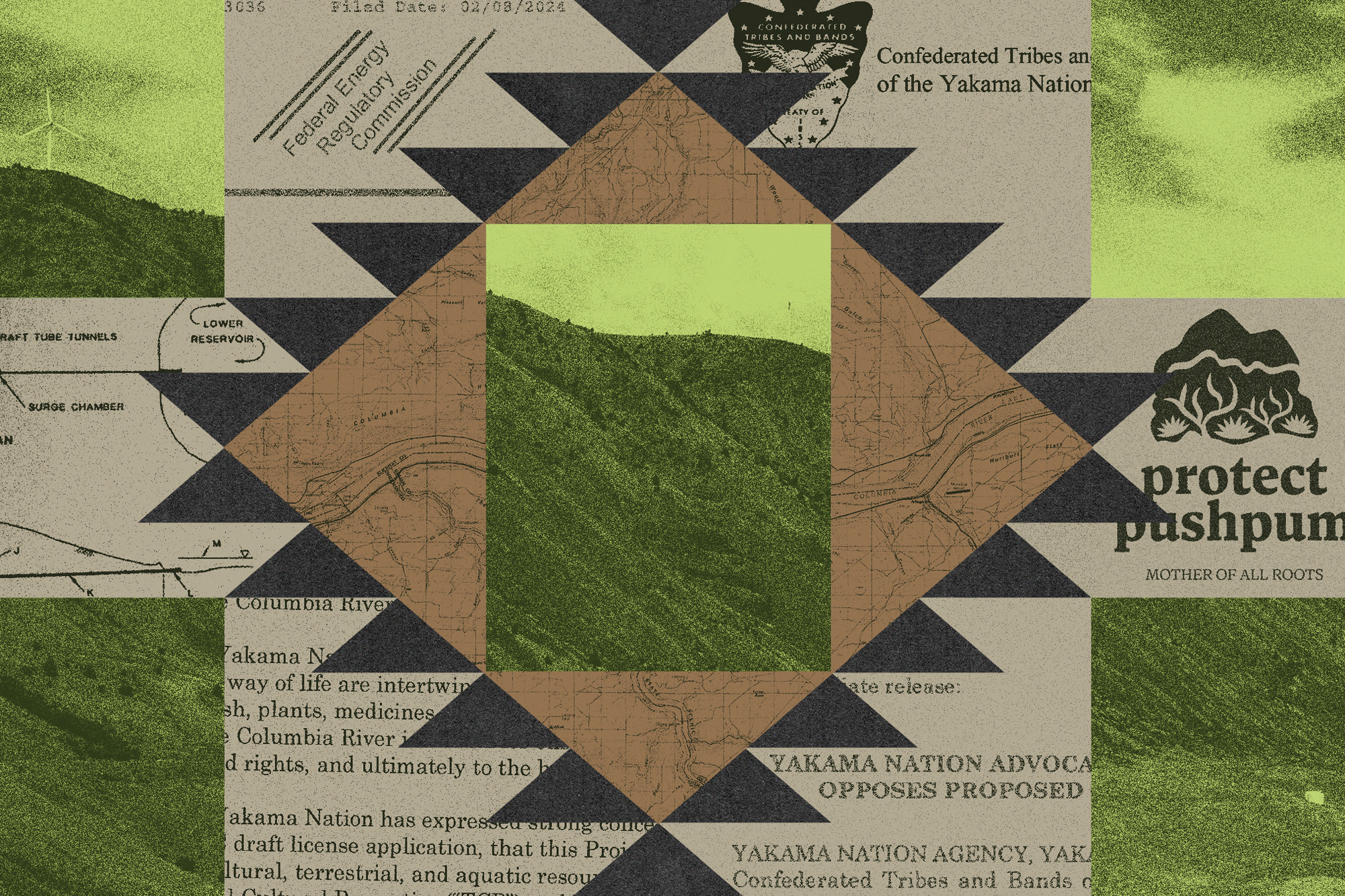Federal rules and a lack of protection for sacred places left the Indigenous nation with an impossible choice.
When Yakama Nation leaders learned in 2017 of a plan to tunnel through some of their ancestral land for a green energy development, they were caught off guard.
While the tribal nation had come out in favor of climate-friendly projects, this one appeared poised to damage Pushpum, a privately owned ridgeline overlooking the Columbia River in Washington. The nation holds treaty rights to gather traditional foods there, and tribal officials knew they had to stop the project.
Problems arose when the Federal Energy Regulatory Commission, the agency in charge of permitting hydro energy projects, offered the Yakama Nation what tribal leaders considered an impossible choice: disclose confidential ceremonial, archaeological and cultural knowledge, or waive the right to consult on whether and how the site is developed.
This put the Yakama Nation in a bind. Disclosing exactly what made the land sacred risked revealing to outsiders what they treasured most about it. In the past, disclosure of information about everything from food to archaeological sites enabled non-Natives to loot or otherwise desecrate the land.
Even now, tribal leaders struggle to safely express what the Pushpum project threatens. “I don’t know how in-depth I can go,” said Elaine Harvey, a tribal member and former environmental coordinator for the tribal fisheries department, when asked about the foods and medicines that grow on the land.
The process known as consultation is often fraught. Federal laws and agency rules require that tribes be able to weigh in on decisions that affect their treaty lands. But in practice, consultation procedures sometimes force tribes to reveal information that makes them more vulnerable, without offering any guaranteed benefit.


